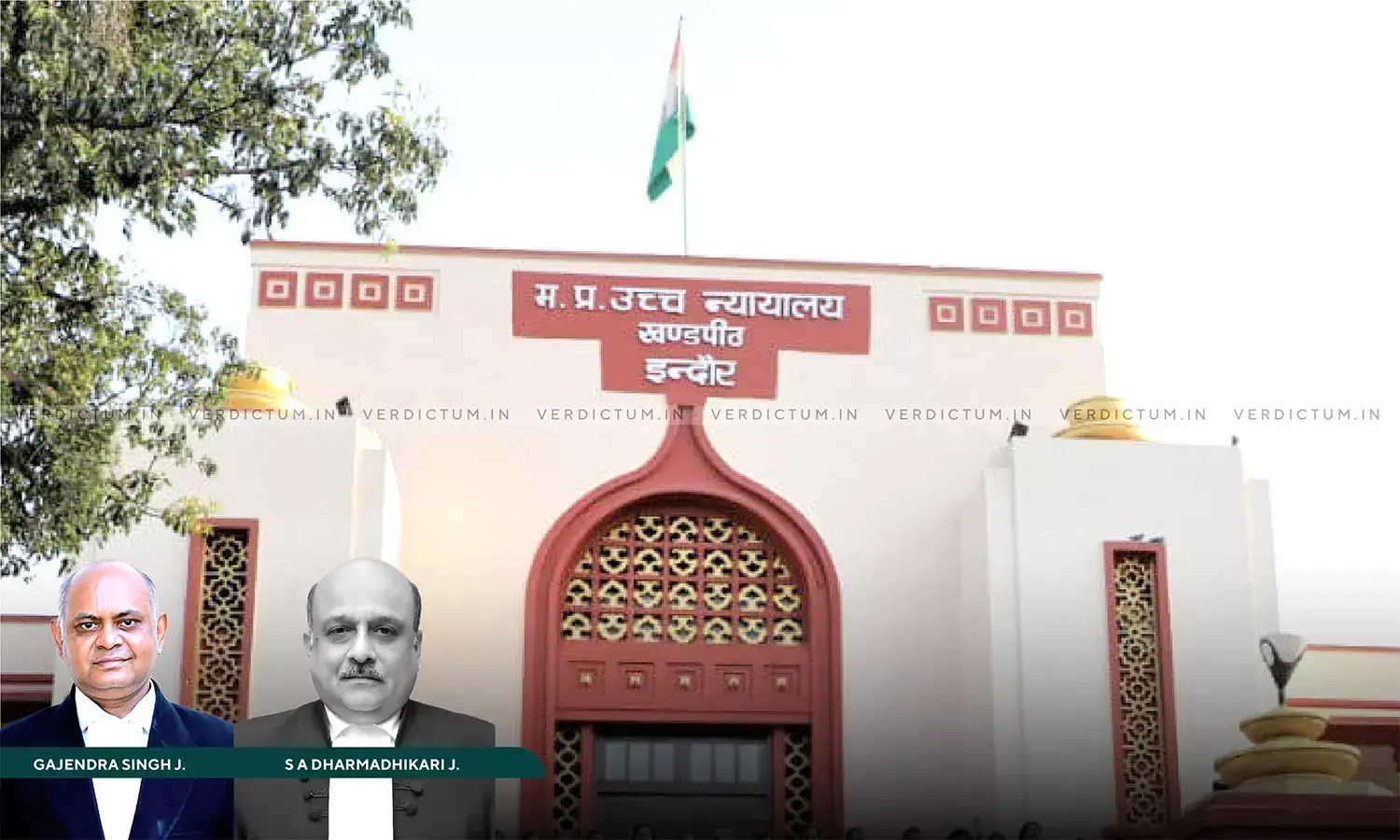Seven Principles To Be Followed While Dealing With Land Acquisition Cases: Madhya Pradesh HC Explains
The Madhya Pradesh High Court observed that the State and its department must follow the seven principles laid down by the Supreme Court while dealing with land acquisition cases.
A writ petition was filed challenging the illegal tender issued by the Housing Board for the construction of houses, buildings, etc. and construction raised by the Respondent-Constructor based on a tender issued by the Madhya Pradesh Housing Board.
The Division Bench of Justice Sushrut Arvind Dharmadhikari and Justice Gajendra Singh observed, “The above seven principles which discussed above are integral to the authority of law enabling compulsory acquisition of private property. State statutes ought to have adopt these principles and incorporate them in different forms in the statutes provisioning compulsory acquisition of immovable property so that no person shall be deprived of his property save by authority of law…The State and its department dealing with the cases of land acquisition should bear in mind and follow these principles to curtail the situation of land acquisition without following due process of law as the ultimate sufferers in the matter of land acquisition are the land owners who are even sometimes poor rustic villagers not very well aware of the rules and being deprived of their rightful claim over the land thereby leading to flooding of Courts with such matters and even after running from pillar to post, it would take years altogether to get justice due to lack of proper knowledge.”
Advocate Ajay Mishra appeared for the Petitioners whereas Senior Advocate Sunil Jain appeared for the Respondents.
The Petitioners are agriculturists and owners of land which was acquired by the Land Acquisition Officer in 1997. They filed a writ petition challenging the validity of notification issued under Sections 4 and 6 of the Land Acquisition Act, of 1894, which was dismissed. Subsequently, an appeal before the High Court and the Supreme Court was also dismissed.
Thereafter against these, various proceedings were initiated and ultimately an application was preferred before Respondent No. 1 for exonerating petitioners' land from acquisition as the new Land Acquisition Act came into force. The Revenue Department accepted the application and issued a letter directing to mutate the names of petitioners in the revenue records. Pursuant to the said letter, directions were sought by the Collector, Ujjain and an order was passed cancelling the order by which the land was exonerated. Aggrieved, the Petitioners filed the present petition.
The Court relied on Article 300A of the Constitution and reiterated the seven principles laid down in the landmark judgment of the Supreme Court in Kolkata Municipal Corporation & Anr. Vs. Bimal Kumar Shah & Ors. (2024), which are 1) The right to notice; 2) The Right to be heard; 3) The Right to a reasoned decision; 4) The Duty to acquire only for public purpose; 5) The Right of restitution or fair compensation; 6) The Right to an efficient and expeditious process; 7)The Right of conclusion. The Court held, “It is a very sorry state of affairs that Revenue Department is one of the department dealing with precious public land and despite issuance of letter dated 11.10.2023, no action has been taken regarding restoring the land in the name of petitioners who have left no stone unturned to get their land back. Their right to property as enshrined under Article 300A of the Constitution of India has been evaded for so long under the garb of acquisition proceedings.”
The Court observed that the acquisition proceedings were void-ab-initio thereby rendering the subsequent tender process as arbitrary and illegal.
The Court also held, “So far as invoking Section 17(4) of the Act of 1894 is concerned, this Court is in consonance with the submissions advanced by the counsel for petitioner that exercise of Section 17(4) to dispense with procedure under Section 5-A is discretionary. Undoubtedly, besides showing public purpose, the Board should have shown the urgency for invoking Section 17(4) of the Act of 1894. There is non- application of mind and failure to form a subjective opinion regarding urgency required…There is no doubt that public interest must receive primacy when it conflicts with private interest. However while invoking power under Section 17(4) to dispense with procedure under Section 5-A, the urgency justifying such invocation must be revealed.”
Accordingly, the Court quashed the award passed by the Land Acquisition Officer and directed him to handover the possession of the acquired lands to the respective owners.
Resultantly, the tender and all subsequent proceedings were also quashed.
Cause Title: Roopnarayan Patel and Ors. v. State of MP and Ors.
Appearances:
Petitioners: Advocate Ajay Mishra
Respondents: Senior Advocate Sunil Jain, Government Advocate Bhuwan Gautam, Advocates Kushagra Jain and Ayushman Choudhary.




